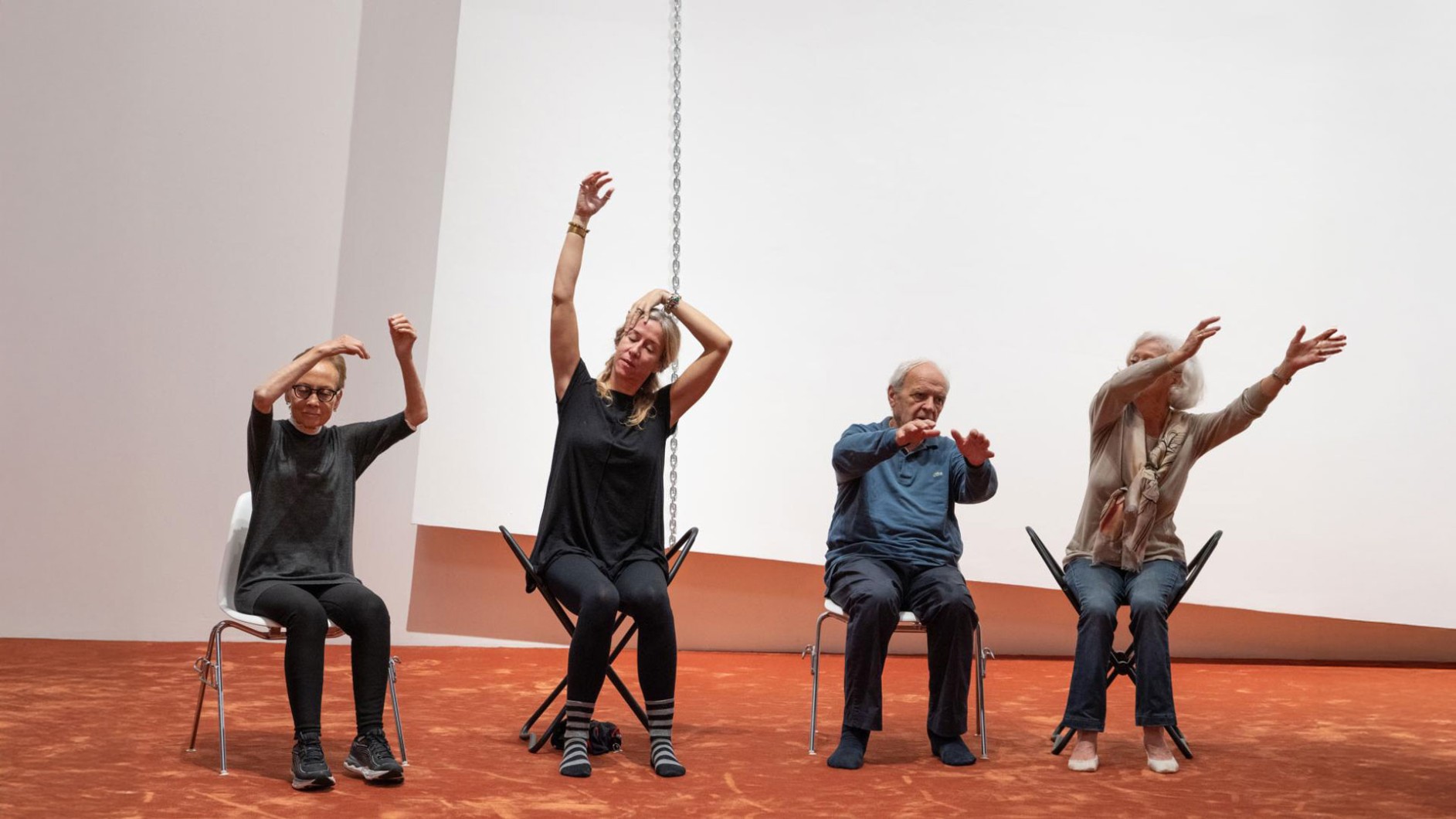Arti e Parkinson: due mattine di incontri al Centro Pecci e a Palazzo Strozzi in occasione della giornata mondiale del Parkinson (10–11 aprile 2025)
Due momenti di condivisione e socializzazione tra danza, arti visive e movimento con i parkinsoniani e i loro familiari come protagonisti: oltre 150 partecipanti nella Sala Grande del Centro Pecci a Prato e nel Cortile di Palazzo Strozzi a Firenze.
Si sono aperte così le due mattinate dell’evento Arti e Parkinson organizzato in partnership da Fondazione Fresco Parkinson Institute Italia Onlus, Fondazione Palazzo Strozzi e Centro per l’Arte Contemporanea Luigi Pecci per celebrare la Giornata Mondiale del Parkinson e portare avanti una riflessione sul ruolo della cultura nella promozione dell’accessibilità, della salute individuale e collettiva e dell’arte per ampliare reti, legami e sinergie sul territorio toscano.
Dopo l’apertura con l’attività di Dance Well e Corpo libero le due giornate hanno visto incontri con esperti di aree che spaziano dalla medicina alla danza, dal design all’arte, confrontarsi e unire le loro conoscenze con il comune obiettivo di mettere le persone con malattia di Parkinson al centro e portare un contributo al miglioramento della loro qualità di vita.
Presso il Centro Pecci con vari interventi si è avviata una riflessione sul tema degli spazi accessibili: dall’abitazione al museo. Un argomento che è stato affrontato sotto vari aspetti ma ponendo sempre l'attenzione ai bisogni individuali e personali delle persone con Parkinson, ai loro desideri con approcci bio-psico-sociali che uniscono operatori di varie discipline. Nella sessione moderata dalla Dott.ssa Monica Norcini si sono approfondite ricerche e proposte sulla "casa inclusiva" per la persona con Parkinson e caregiver che comprendono soluzioni innovative illustrate dal Dott. Mattia Pistolesi, designer e ricercatore presso il Dipartimento di Architettura DIDA dell'Università di Firenze, e dalla terapista occupazionale Dott.ssa Azzurra Begeja (da soluzioni open space per le abitazioni a stimoli esterni come i cues visivi fino a strumenti e oggetti posizionati in modo ergonomico). Anche i musei affrontano la sfida dell'accessibilità per le persone con Parkinson: Veronica Carpino, membro di Studio Fosbury Architecture, ha presentato l'innovativo progetto per il Laboratorio di Benessere presso il Centro Pecci, uno spazio ideato appositamente per i Laboratori di Attività Espressive offerti dal museo, con soluzioni flessibili per adattarsi alle necessità di ogni persona da 0 a 99 anni; il progetto integra la visione strategica in termini di accessibilità, fisica, cognitiva e sensoriale portata avanti dal Direttore Generale del Centro Pecci, Dott. Stefano Collicelli Cagol, attraverso il progetto PNRR.
Il secondo giorno si è svolto nell’Altana di Palazzo Strozzi e il tema è stato l’impatto che le arti hanno nei nostri corpi e a live cerebrale, da un punto di vista individuale e sociale. Il dott. Enrico Grassi, neurologo della SOC Neurologia dell’Ospedale di Prato ha portato l’attenzione sul funzionamento del cervello visivo sia nella fruizione che nella creazione dell’opera d’arte, in un excursus tra arte e scienza dove l’esperienza culturale diventa un modo per ritrovare benessere. La Dott.ssa Luisella Carnelli ha poi proseguito la mattina approfondendo gli effetti che un’attività come Dance Well può avere sulle persone, in un contesto dinamico in cui ognuno può riappropriarsi della propria capacità espressiva. È emerso il forte legame tra arte e ambito socio-sanitario: i due settori stanno trovando nuove forme di collaborazione, lo testimonia il crescere di esperienze di welfare culturale e l’emergere anche in Italia del social prescribing, come accade a Firenze a Casa Parkinson, come raccontato dalla responsabile Dott.ssa Paola Vanni. In questo contesto la Fondazione Palazzo Strozzi è impegnata da anni con un ampio programma di accessibilità diventato parte integrante di ogni mostra e che testimonia la volontà di costruire un contesto dove tutte persone, anche chi vive condizioni complesse come quella del Parkinson, può partecipare attivamente.
Le due giornate sono state l’occasione per mettere in rete le tre importanti istituzioni toscane, tutte impegnate nel migliorare la qualità di vita delle persone con malattia di Parkinson, attraverso la partecipazione ad attività artistiche stimolanti che promuovono creatività, partecipazione e socialità.
